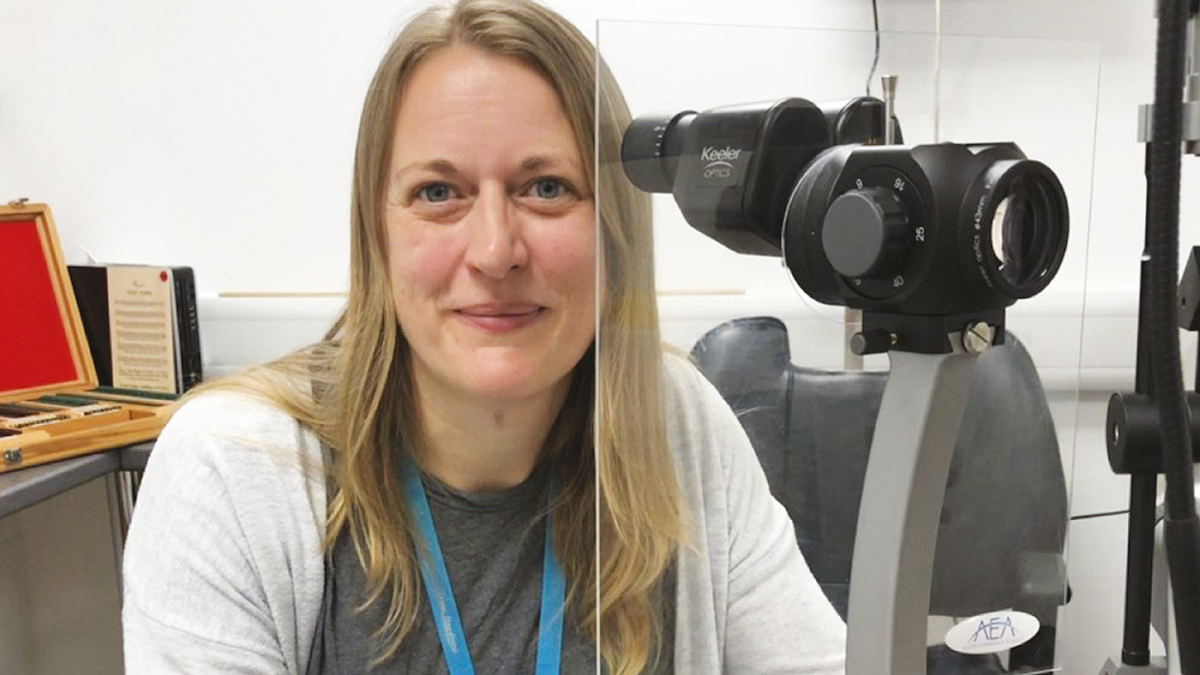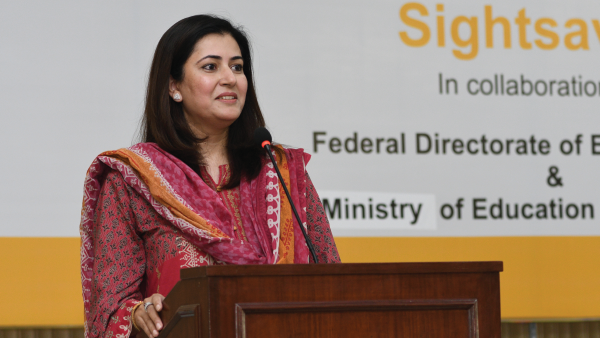Clinical Attachment
The BCLA’s Myopia Management Practitioner of the Year, Kathryn Webber, discusses her university-based clinic
In June 2023, in recognition of her work in decelerating myopia in children, Kathryn Webber – a Clinical Teaching Fellow in Optometry at the University of Bradford – was named Myopia Management Practitioner of the Year by the British Contact Lens Association (BCLA). The award comes after Webber set up a myopia management clinic (MMC) based in the university grounds in 2016. The clinic offers specially designed glasses and contact lenses to slow down myopia progression, typically catering to children aged 7–16.
One of the biggest challenges setting up the clinic? Ring-fencing her time to run it effectively. Deciding on the standard protocols took a lot of research because very few other places provided the service back in 2016. “It also took some time to build up a patient base as there wasn’t much public knowledge about myopia management options in 2016,” Webber tells The New Optometrist.
Despite the hurdles, there are certain benefits to such a unique practice. It doesn’t operate under the same time constraints as a commercial practice, for example. “We can spend lots of time with our patients,” says Webber. “And with myopia management, communication is really important; we need to get across what we do know and what we don’t know, as well as the risk–benefit profile of wearing contact lenses. All of these aspects take time to properly get across to parents to gain informed consent.”
The majority of the MMC’s patients are from the Bradford area, but some – often those patients with a complex history – travel quite a distance (up to 100 miles), and they appreciate the time the staff are able to give them. And because of its close relationship with the university, the clinic also has access to specific instrumentation, including an IOLMaster, a topographer, and specular microscope, that Webber believes would be unavailable to a standard high street practice.
In fact, the MMC is set within the university’s existing Eye Clinic, where third-year students – under supervision – have the opportunity to see patients under various clinical conditions. “I think an ability to critically evaluate the evidence is the most crucial skill that we can teach students,” explains Webber. “This is especially true in a rapidly evolving area, such as myopia management, where new treatments are constantly emerging. I’d like students to be able to make sense of the literature and make evidence-based decisions for their patients.”
Being able to clearly communicate the risks and benefits of myopia management while using the evidence is another critical skill for students, she adds. “And this skill will be hugely useful to them as they move forward in their careers.”
As well as running the clinic, Webber is working on PhD research investigating how myopia management interventions might impact university-aged students. “We know that a significant minority of myopes will continue to progress into their 20s, and this is more likely if they remain in full-time education,” she says. “But we don’t know if the interventions we use in the younger age groups will also work in this population. Hopefully, we’ll find positive evidence so we can help these people.”
The New Optometrist Newsletter
Permission Statement
By opting-in, you agree to receive email communications from The New Optometrist. You will stay up-to-date with optometry content, news, events and sponsors information.
You can view our privacy policy here
Most Popular
Sign up to The New Optometrist Updates
Permission Statement
By opting-in, you agree to receive email communications from The New Optometrist. You will stay up-to-date with optometry content, news, events and sponsors information.
You can view our privacy policy here
Sign up to The New Optometrist Updates
Permission Statement
By opting-in, you agree to receive email communications from The New Optometrist. You will stay up-to-date with optometry content, news, events and sponsors information.
You can view our privacy policy here







